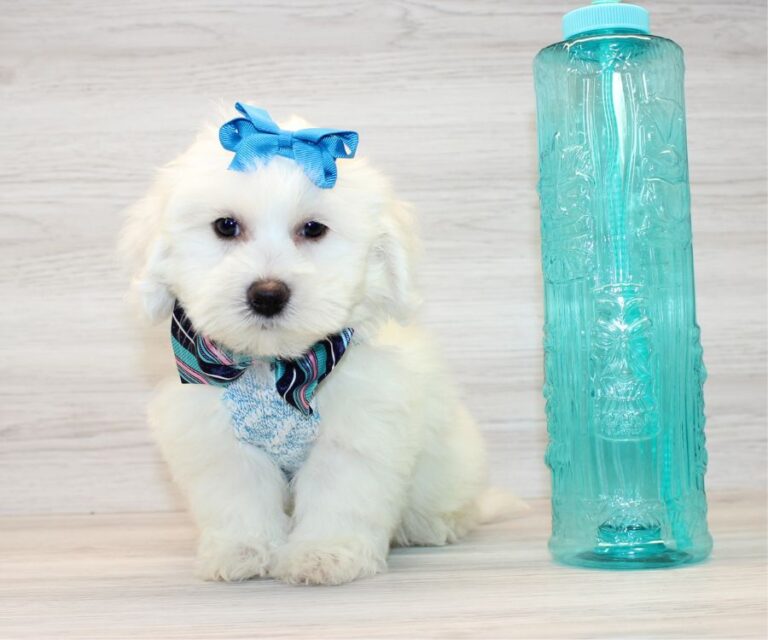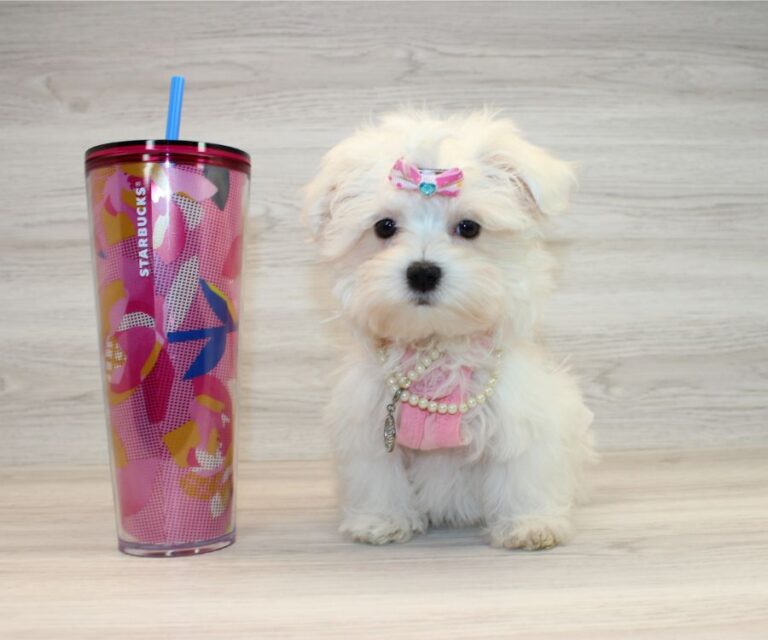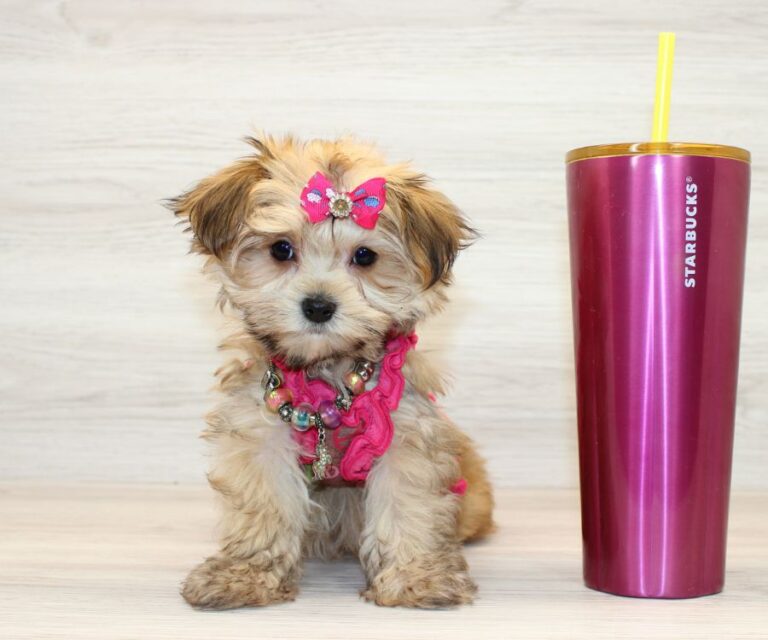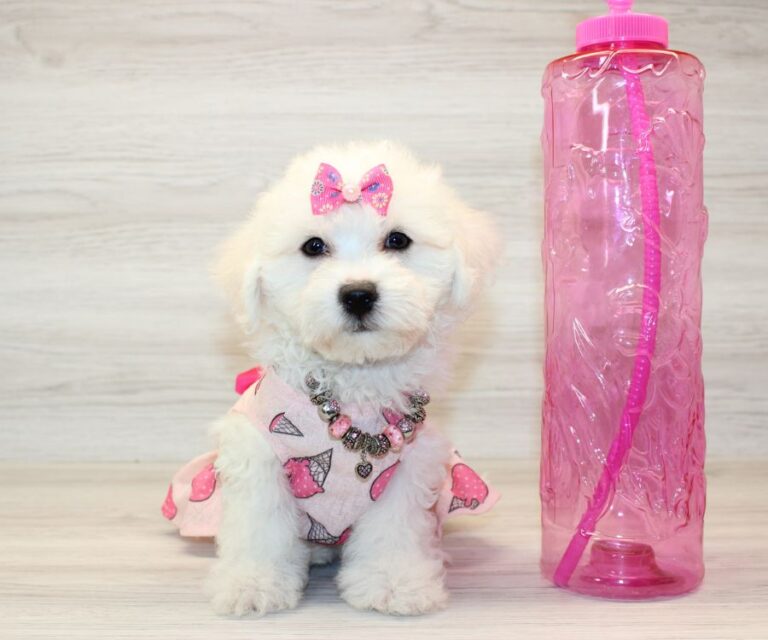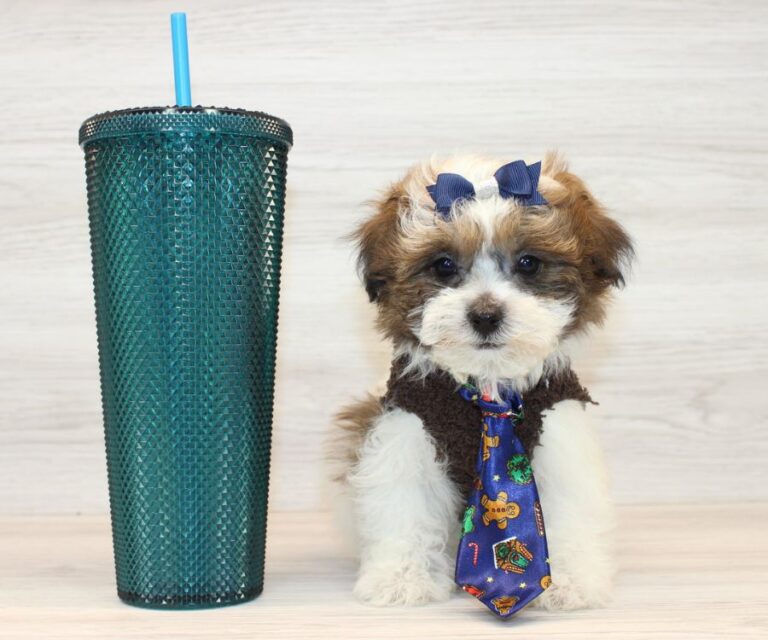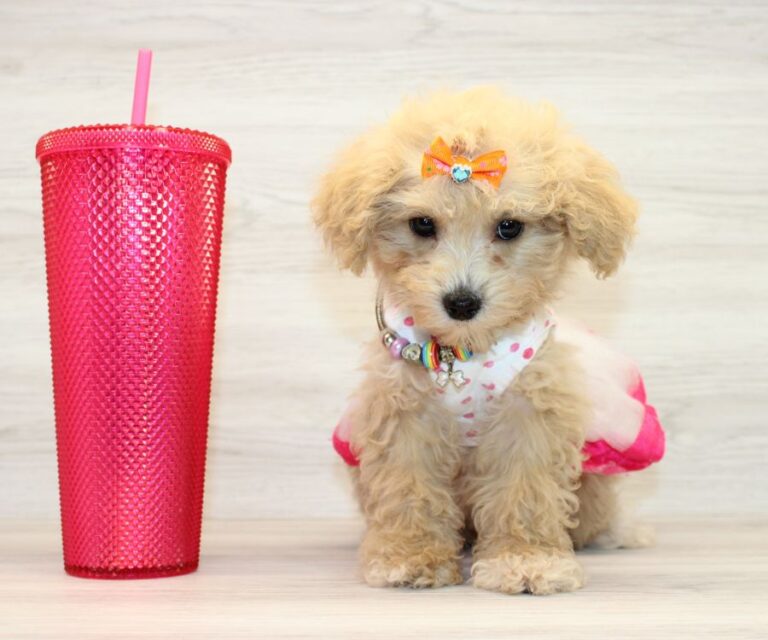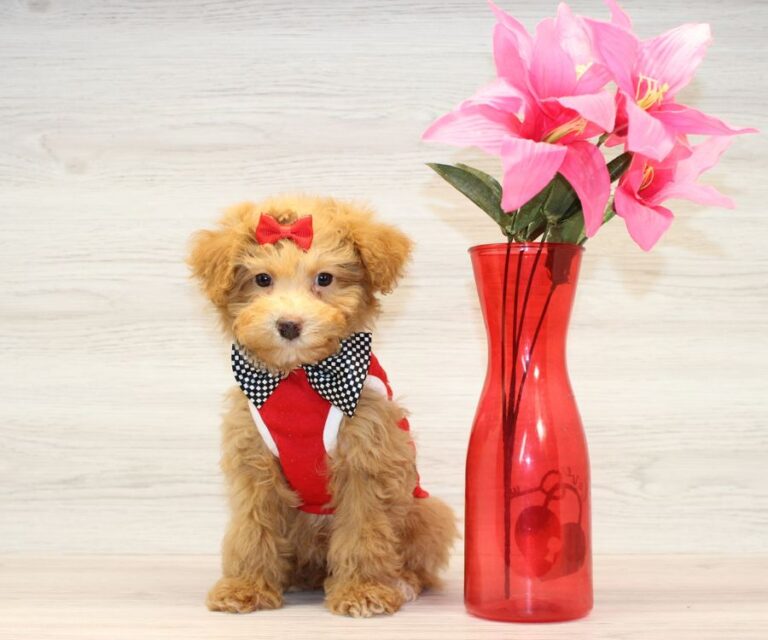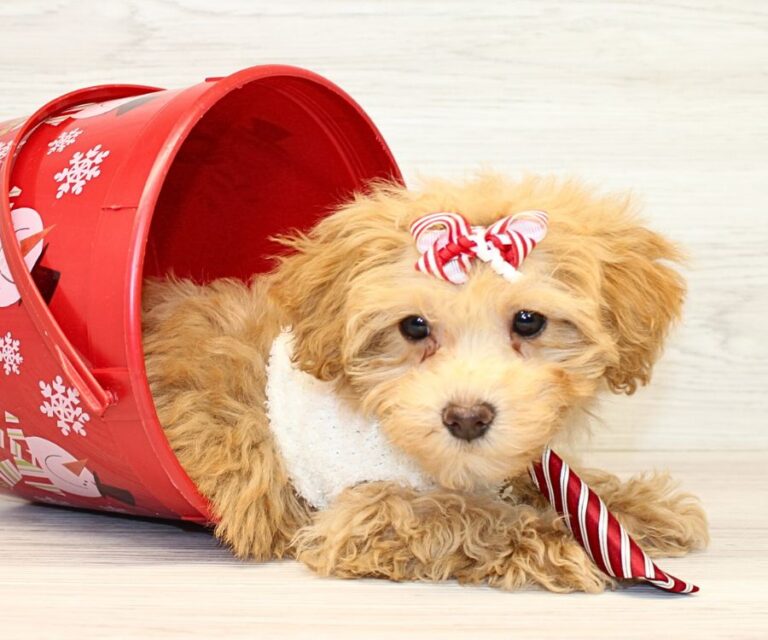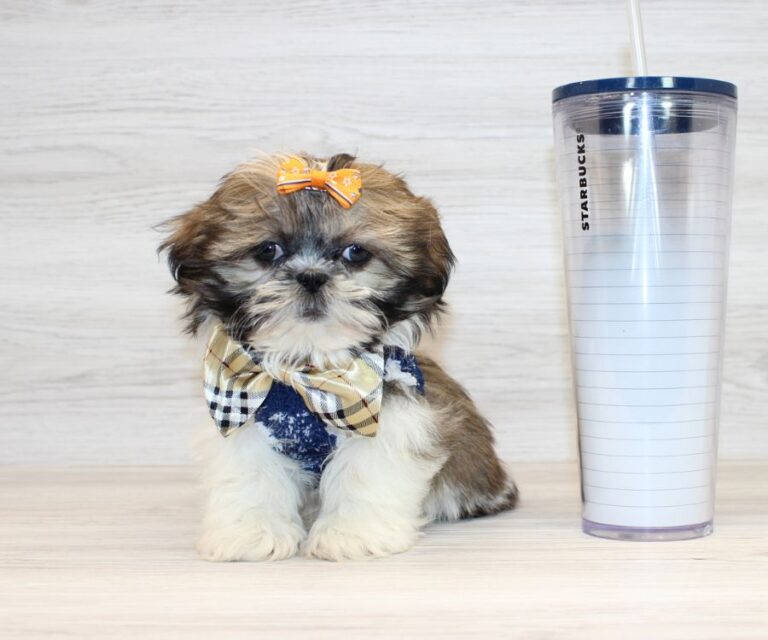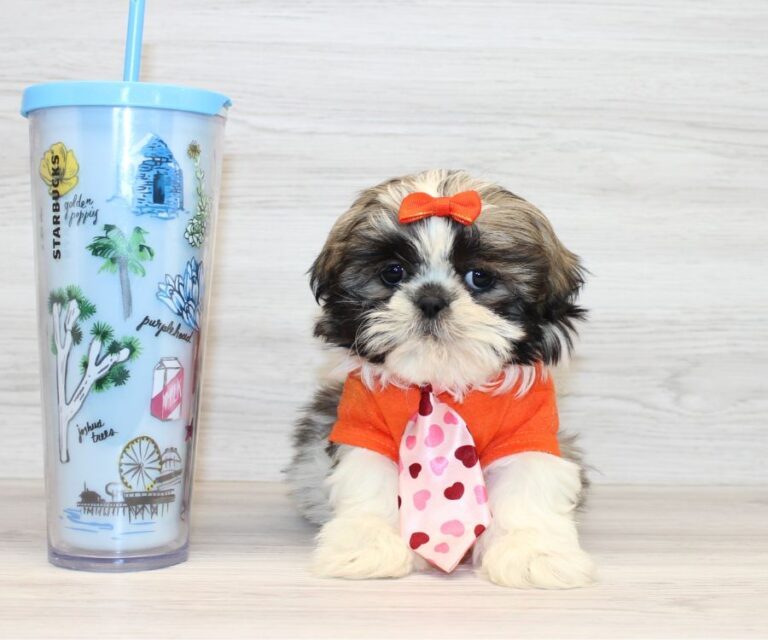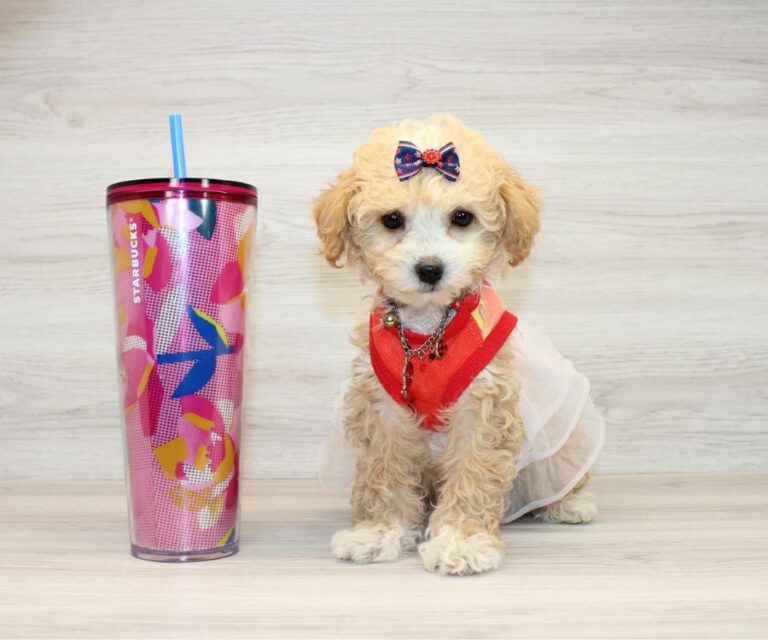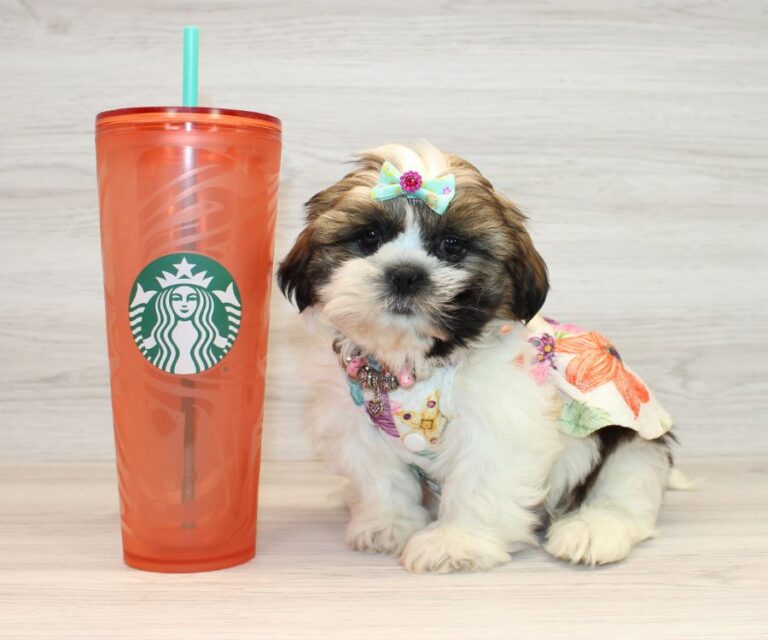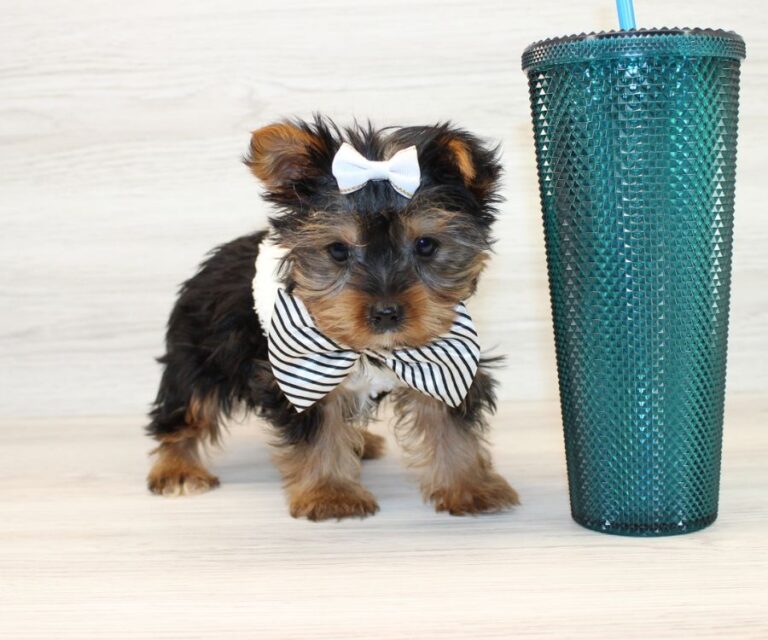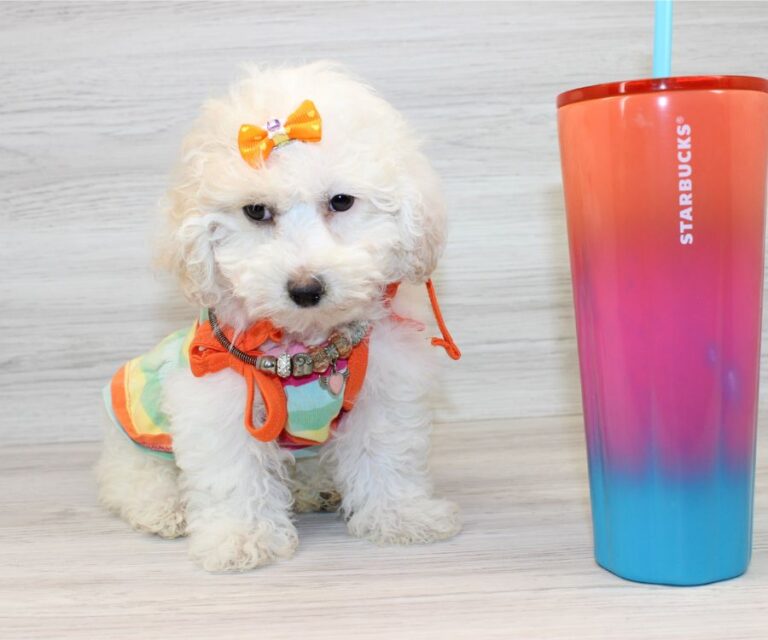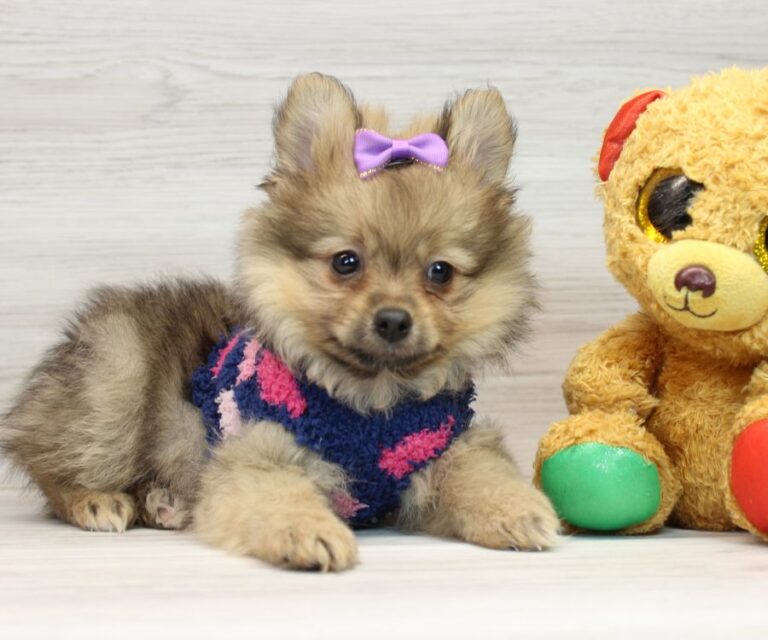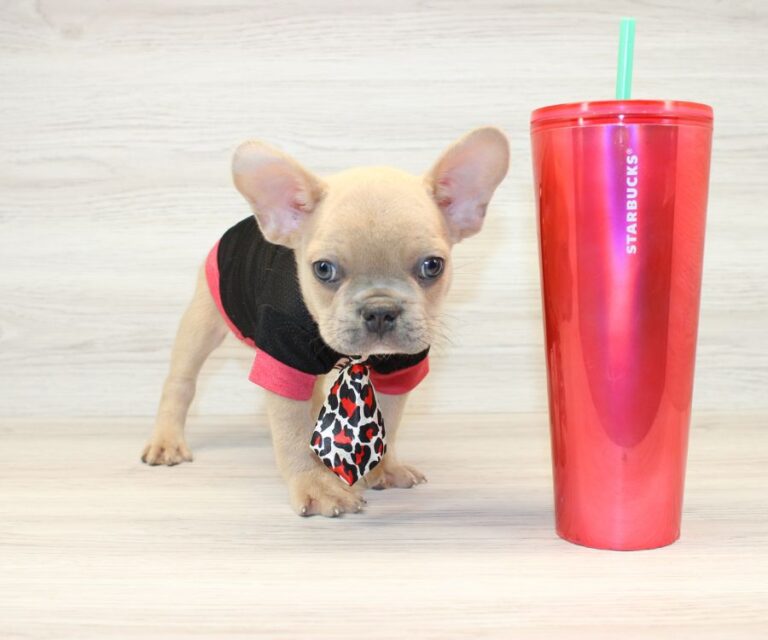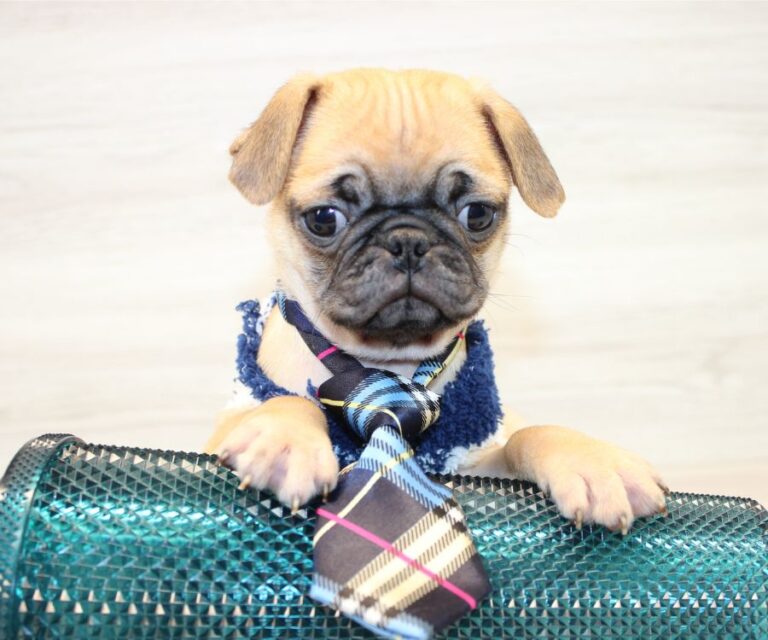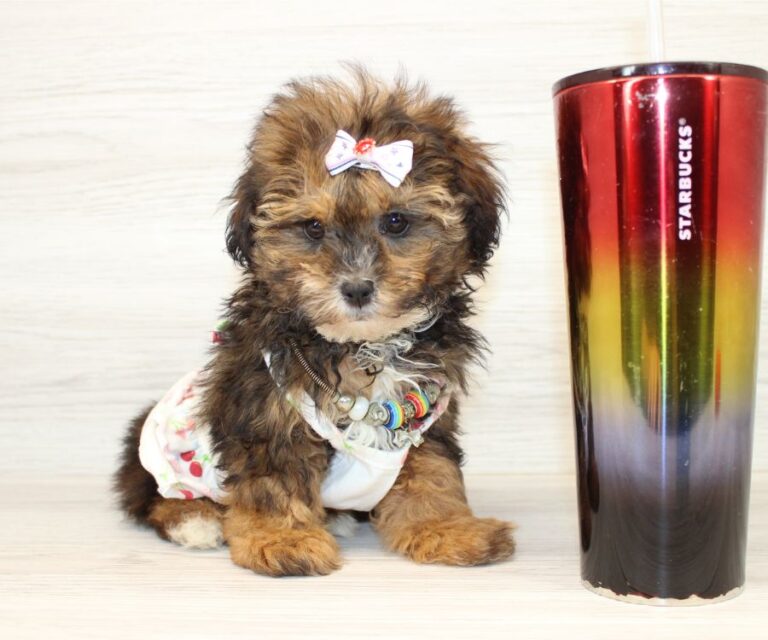You can find toy and teacup puppies for sale at Puppyheaven.com in Mountain View, CA. They offer breeds like Yorkshire Terriers, Pomeranians, and Chihuahuas, each suited for indoor living due to their manageable size and minimal grooming needs. These breeds are affectionate, making them ideal companions. It’s important to understand each breed’s unique characteristics and health care needs, including a specific vaccination schedule. For first-time owners, establishing a consistent routine is essential. Puppyheaven also provides essential after-adoption support. Discovering more about each breed’s history and care requirements can ensure a well-informed decision.
Why Choose Toy & Teacup Puppies
Toy and teacup puppies often become the preferred choice due to their manageable size and adaptability. You’ll find that these diminutive dogs offer significant size benefits, particularly if you’re living in a smaller space such as an apartment or a condo. Their compact stature makes them ideal for indoor living, needing minimal space for daily activities compared to larger breeds. Importantly, this smaller size translates to less food consumption and reduced grooming needs, which can alleviate some of the maintenance costs associated with pet ownership.
Moreover, the personality traits of toy and teacup puppies are distinctly suited for those who value companionship and service. These dogs typically exhibit a loving and affectionate nature, making them excellent companions for the elderly or those in need of emotional support. They’re also easier to handle and transport, whether it’s a trip to the vet or a family vacation, enhancing their role as a manageable and loyal companion.
Understanding these aspects, you can see why toy and teacup puppies aren’t just pets, but a practical choice for those seeking to enrich their lives or serve the needs of others with the help of a small, yet spirited animal.
Available Breeds at Puppyheaven
At Puppyheaven, you’ll discover a diverse array of breeds including Yorkshire Terriers, Pomeranians, and Chihuahuas, each selected for their unique traits and compatibility with different lifestyles. Yorkshire Terriers, often known for their spirited demeanor, boast a rich breed history that dates back to 19th century England, originally bred for catching rats in clothing mills. Their grooming needs are considerable, requiring regular brushing and professional grooming to maintain their fine, silky coat.
Pomeranians, with their origins as sled dogs in the Arctic, now serve as affectionate companions. They possess a fluffy double coat that demands routine brushing to prevent matting and control shedding. Understanding their background can help you appreciate their resilient and lively nature.
Chihuahuas, the smallest breed, have a history intertwined with ancient Mexican civilizations. They’re known for their devotion and alertness. Despite their minimal grooming needs, regular brushing is beneficial to keep their coat shiny and healthy.
When choosing a breed, consider these aspects to guarantee the best match for your service-oriented lifestyle. Each breed’s unique characteristics and care requirements need to be aligned with your ability to meet them, fostering a nurturing and supportive environment for your new companion.
Health and Vaccination Information
When you choose a toy or teacup puppy, understanding their vaccination schedule is essential for their health and longevity. These small breeds often face specific health concerns, such as hypoglycemia and respiratory issues, which require vigilant monitoring.
It’s vital you’re aware of these risks and make sure your puppy receives all necessary vaccinations and check-ups to foster a healthy start.
Vaccination Schedule Overview
To guarantee your puppy’s health, you’ll need to follow a specific vaccination schedule starting as early as six weeks of age. Despite some immunization myths, these vaccines are essential for preventing serious diseases.
Initially, your puppy will receive vaccinations for parvo and distemper, followed by boosters every 3-4 weeks until they’re about 16 weeks old. Depending on your puppy’s health and lifestyle, schedule customization may be necessary. Consult with your vet to tailor the plan, considering factors like breed, exposure risk, and local regulations.
Rabies vaccination is typically administered at around 12 to 16 weeks. Adhering strictly to this schedule is crucial to ensure your puppy’s long-term health and compliance with local pet ownership laws.
Common Health Concerns
Toy and teacup puppies, due to their small size and selective breeding, often face unique health challenges that require careful monitoring and proactive care. These diminutive breeds are susceptible to various genetic predispositions that can impact their overall health. It’s important for you to understand these risks to effectively manage and prevent potential issues.
For instance, their tiny stature can lead to problems with their bones and joints, while their breeding can predispose them to respiratory and cardiac conditions. The impact of diet is also significant; proper nutrition is essential for supporting their delicate health. You must make sure they receive a balanced diet that meets their specific needs to mitigate health risks and promote longevity.
Tips for First-Time Owners
As a first-time owner, you must choose a puppy that matches your lifestyle and living arrangements to guarantee a harmonious fit. Understanding that toy and teacup puppies, while small, require specific care to thrive is important.
Here are key areas you need to focus on:
Firstly, establish a consistent feeding schedule. Toy and teacup breeds have small stomachs, therefore they need to eat more frequently than larger breeds. Plan to feed your puppy small, nutrient-rich meals three to four times a day. This helps prevent hypoglycemia, a common health issue in smaller breeds due to their faster metabolism.
Secondly, grooming basics aren’t just about keeping your puppy looking good; they’re important for maintaining overall health. Begin a grooming routine early to get your puppy comfortable with the process. Brush your puppy’s coat daily to prevent matting and to distribute natural oils evenly. Regular ear checks and nail trims are also crucial to prevent infections and discomfort.
Puppy Training Essentials
Training your toy or teacup puppy requires patience and consistency, starting with basic commands such as ‘sit’, ‘stay’, and ‘come.’
Housebreaking your puppy is vital and should be initiated as soon as you bring them home, using frequent bathroom breaks and positive reinforcement to establish good habits.
Additionally, crate training can offer your puppy a sense of security and greatly aid in managing their anxiety and behavior when you’re not around.
Basic Commands Training
Starting with basic commands such as ‘sit,’ ‘stay,’ and ‘come,’ you’ll establish essential communication and obedience between you and your puppy. These foundational commands are the bedrock for more complex training and socialization methods. By mastering these, you pave the way for teaching advanced tricks, enhancing your puppy’s cognitive abilities and responsiveness.
It’s important to integrate these commands into daily routines, reinforcing them consistently. Use positive reinforcement techniques such as treats and praise to reward compliance, which fosters a positive learning environment. This approach not only strengthens the bond between you and your puppy but also greatly aids in their social development, preparing them for future interactions with humans and other animals.
Housebreaking Your Puppy
Housebreaking your puppy requires establishing a consistent schedule for feeding, potty breaks, and sleep to foster predictable bathroom habits. Potty schedules are crucial; ideally, take your puppy out first thing in the morning, after meals, and before bedtime. This regularity helps them learn when and where it’s appropriate to go. Be patient and observe your puppy closely. If they start circling or sniffing, it’s likely a cue that they need to be taken out immediately.
Utilize training rewards effectively. Whenever your puppy successfully goes potty outside, immediately offer a treat and enthusiastic praise. This positive reinforcement makes them associate the act of eliminating outdoors with outcomes that they desire, enhancing the learning process. Consistency and positive reinforcement are key in housebreaking success.
Crate Training Benefits
While housebreaking sets the foundation for your puppy’s good habits, crate training further supports their emotional and behavioral development by providing a safe, personal space. This structured environment aids in managing anxiety and stress, making travel adjustments smoother for your pet. When introduced properly, the crate becomes a familiar retreat, helping your puppy adapt quicker to different transport scenarios.
Additionally, establishing consistent night routines is important. A crate helps your puppy understand when it’s time to settle down for the evening, promoting better sleep habits and reducing nighttime restlessness. It’s vital to make sure the crate is comfortable and inviting, using appropriate bedding and safe toys, to reinforce positive associations and support your puppy’s overall well-being.
Adoption Process Explained
Understanding the adoption process is essential before you bring a new puppy into your home. Initially, you’ll need to take into account the puppy costs which include not only the purchase price but also vaccinations, microchipping, initial veterinary visits, and necessary supplies like food, bedding, and toys. It’s important to budget for these expenses to make sure you can properly care for your new pet.
Next, you must familiarize yourself with the legal requirements for owning a puppy in Mountain View, CA. This includes understanding local licensing laws, which typically require you to register your pet with the city and keep vaccinations up to date. Some breeds may also have specific regulations or bans, so it’s important to verify that the puppy you’re considering is compliant with local laws.
The adoption process itself starts with an application. You’ll provide details about your living situation, experience with pets, and how you plan to care for the puppy. After your application is reviewed, you’ll usually meet the puppy in person to ensure a good fit. If all goes well, you’ll complete the adoption by signing a contract, paying the fee, and receiving ownership documents and medical records.
After Adoption Support Services
After you’ve adopted your puppy, ongoing support services are essential to help you and your new pet adjust smoothly to life together. At Puppyheaven.Com, we’re committed to your success and offer a wide range of after adoption support services that are designed to cater to your needs and those of your puppy.
Our training methods are developed by certified pet behaviorists and are tailored to the unique needs of toy and teacup puppies. We’ll guide you through basic obedience training, potty training, and socialization techniques to make sure your puppy grows into a well-adjusted adult. You’ll receive detailed manuals and access to online tutorials that allow you to learn at your own pace.
Additionally, we provide dietary tips to help you choose the right food for your puppy’s specific breed and size requirements. Understanding the nutritional needs of your teacup or toy puppy is crucial, as their smaller bodies have different requirements compared to larger breeds. Our team offers scheduled consultations and 24/7 online support to address any feeding concerns you might have, ensuring your puppy maintains excellent health.
Conclusion
You’ve made a great choice considering toy and teacup puppies from Puppyheaven in Mountain View, CA. With a variety of breeds available, each puppy comes with up-to-date vaccinations and a health guarantee.
As a first-time owner, you’ll benefit from essential training tips and our thorough adoption process. Remember, our after-adoption support is always here to help you and your new puppy adjust smoothly.
Welcome to the rewarding journey of puppy parenthood!

